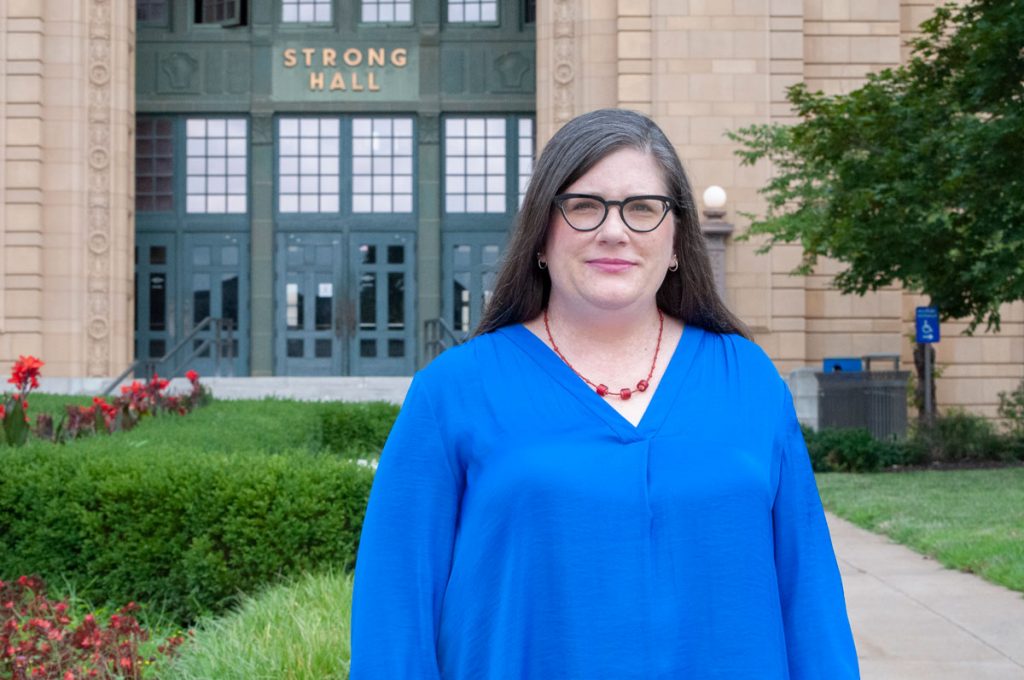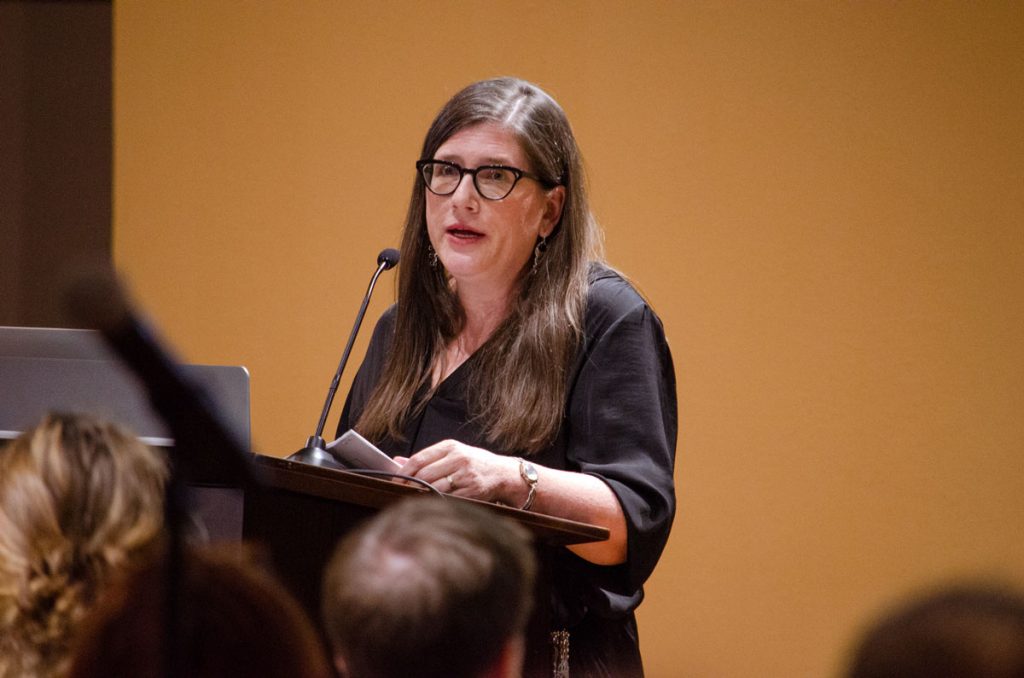Sarah Deer, L’99, aims to end gender-based violence in Native American communities through legislative change, legal scholarship and advocacy

Sarah Deer, L’99, has dedicated her career to ending violence against women in Native American communities. For nearly 30 years, she has advocated for the protection of Native women and worked with survivors. Her scholarship and advocacy focus on the intersection of federal Indian law and victims’ rights.
Deer is a citizen of the Muscogee (Creek) Nation of Oklahoma. She was instrumental in the development and passage of landmark legislation that protects Native American women from gender-based violence, including The Tribal Law and Order Act of 2010, and the 2013 and 2019 reauthorizations of the Violence Against Women Act.
She has also testified before Congress on four occasions and filed five amicus briefs with the U.S. Supreme Court. Deer is also the chief justice of the Prairie Island Indian Community Supreme Court.
“My testimony to Congress about violence against Native women and my Supreme Court briefs advocating for the interests of Native women and children are two notable examples where I have used my legal education to ameliorate the status of underprivileged communities,” Deer said.
Deer, who grew up in Wichita, is a two-time alumna of the University of Kansas. She earned undergraduate degrees with honors in women’s studies and philosophy in 1996. Deer also earned a J.D. and a Tribal Lawyering Certificate from the University of Kansas School of Law in 1999.
“The law school at the University of Kansas is also a great value,” Deer said. “It’s an excellent education at a reasonable cost.”
Deciding where to pursue her education was an easy choice for Deer because she is a second-generation Jayhawk. Her mother, Jan Deer, graduated from KU in 1970 with a bachelor’s degree in science education. Her father, Montie Deer, also went to KU.
“I already had an affinity to KU because I studied here as an undergrad,” Deer said. “Both of my parents attended KU.”
After law school, Deer worked at the U.S. Department of Justice in Washington, D.C. and at the Tribal Law and Policy Institute in Los Angeles as a victim-advocacy legal specialist and staff attorney. She also co-directed the Indian Law Clinic at the Mitchell Hamline School of Law in Saint Paul, Minnesota.

In 2016, she served as the Langston Hughes Visiting Professor at KU.
“In the Fall of 2016, I returned to Lawrence as a visiting faculty member as part of the Langston Hughes program,” Deer said. “I enjoyed my time in Lawrence and working with other KU faculty. I was fortunate enough to be offered a permanent position at the College of Liberal Arts and Sciences. My positive experience with students made it an easy decision to return to KU.”
Deer is now a University Distinguished Professor in KU’s Department of Women, Gender & Sexuality Studies. She has a joint appointment in the School of Public Affairs & Administration and is a courtesy professor at KU Law.
“I like sharing my own experiences as a graduate of KU, and I encourage students to dream big,” Deer said.
Deer was awarded a “Genius Grant” from the MacArthur Fellows Program in 2014. She was inducted into the National Women’s Hall of Fame in 2019. She was the first woman from KU and the fifth Kansan to receive the honor. Earlier this year, she was selected to be in the 2020 class of Andrew Carnegie Fellows. Through the fellowship, Deer will author a book, Indigenous Democracies: Native Women and the Future of Tribal Nations in the United States, about the basis of indigenous democracies in Native women’s political activism.
Deer has co-authored four tribal law textbooks. She also published a book, The Beginning and End of Rape: Confronting Sexual Violence in Native America, in 2015. Deer has published articles in law journals, including the Harvard Journal of Law and Gender, the Yale Journal of Law and Feminism, and the Columbia Journal of Gender and Law.
In addition to her scholarly work, Deer serves the Muscogee (Creek) Nation of Oklahoma as a formal consultant on legal reform efforts.
— By Ashley Golledge